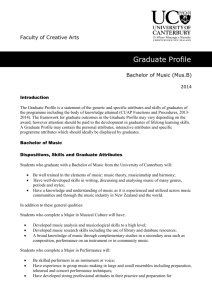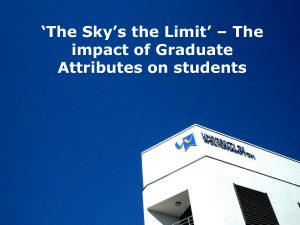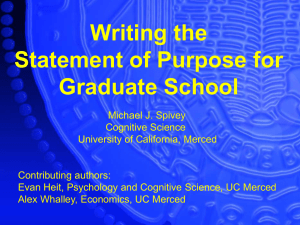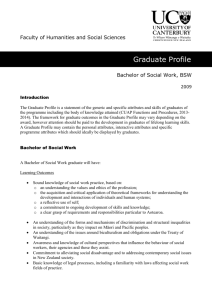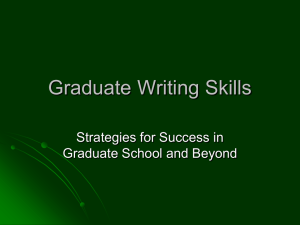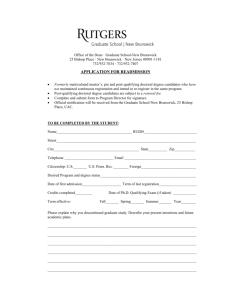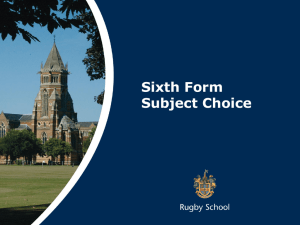case study: Graduate attributes
advertisement
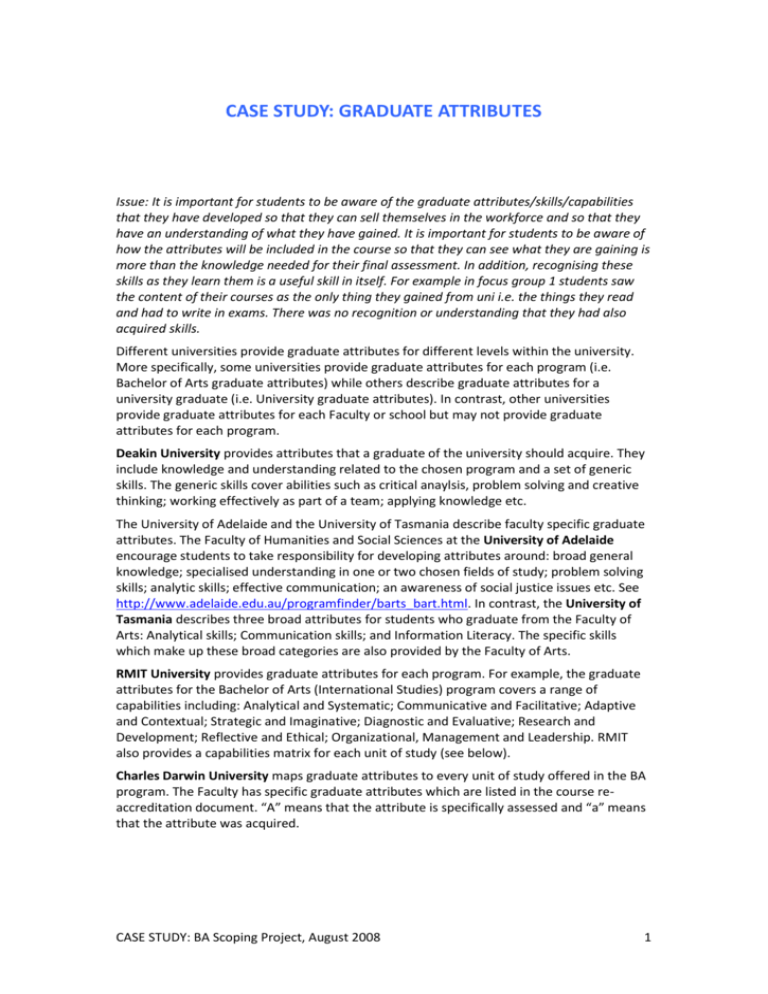
CASE STUDY: GRADUATE ATTRIBUTES Issue: It is important for students to be aware of the graduate attributes/skills/capabilities that they have developed so that they can sell themselves in the workforce and so that they have an understanding of what they have gained. It is important for students to be aware of how the attributes will be included in the course so that they can see what they are gaining is more than the knowledge needed for their final assessment. In addition, recognising these skills as they learn them is a useful skill in itself. For example in focus group 1 students saw the content of their courses as the only thing they gained from uni i.e. the things they read and had to write in exams. There was no recognition or understanding that they had also acquired skills. Different universities provide graduate attributes for different levels within the university. More specifically, some universities provide graduate attributes for each program (i.e. Bachelor of Arts graduate attributes) while others describe graduate attributes for a university graduate (i.e. University graduate attributes). In contrast, other universities provide graduate attributes for each Faculty or school but may not provide graduate attributes for each program. Deakin University provides attributes that a graduate of the university should acquire. They include knowledge and understanding related to the chosen program and a set of generic skills. The generic skills cover abilities such as critical anaylsis, problem solving and creative thinking; working effectively as part of a team; applying knowledge etc. The University of Adelaide and the University of Tasmania describe faculty specific graduate attributes. The Faculty of Humanities and Social Sciences at the University of Adelaide encourage students to take responsibility for developing attributes around: broad general knowledge; specialised understanding in one or two chosen fields of study; problem solving skills; analytic skills; effective communication; an awareness of social justice issues etc. See http://www.adelaide.edu.au/programfinder/barts_bart.html. In contrast, the University of Tasmania describes three broad attributes for students who graduate from the Faculty of Arts: Analytical skills; Communication skills; and Information Literacy. The specific skills which make up these broad categories are also provided by the Faculty of Arts. RMIT University provides graduate attributes for each program. For example, the graduate attributes for the Bachelor of Arts (International Studies) program covers a range of capabilities including: Analytical and Systematic; Communicative and Facilitative; Adaptive and Contextual; Strategic and Imaginative; Diagnostic and Evaluative; Research and Development; Reflective and Ethical; Organizational, Management and Leadership. RMIT also provides a capabilities matrix for each unit of study (see below). Charles Darwin University maps graduate attributes to every unit of study offered in the BA program. The Faculty has specific graduate attributes which are listed in the course reaccreditation document. “A” means that the attribute is specifically assessed and “a” means that the attribute was acquired. CASE STUDY: BA Scoping Project, August 2008 1 Disclaimer: The information described above emerged from interviews, discussions and observation of publicly available materials during the BA Scoping Project which commenced in March 2007 and concluded in August 2008. As a result, the practices described in this case study may not reflect current practices or institutional policy. They are a reflection of the understanding at the time the scoping project was in progress. Disclaimer: The information described above emerged from interviews, discussions and observation of publicly available materials during the BA Scoping Project which commenced in March 2007 and concluded in August 2008. As a result, the practices described in this case study may not reflect current practices or institutional policy. They are a reflection of the understanding at the time the scoping project was in progress. Support for this publication has been provided by the Australian Learning and Teaching Council Ltd, an initiative of the Australian Government Department of Education, Employment and Workplace Relations. The BA Scoping project was developed under the auspice of The Australasian Council of Deans of Arts, Social Sciences and Humanities (DASSH The views expressed in this publication do not necessarily reflect the views of the Australian Learning and Teaching Council. CASE STUDY: BA Scoping Project, August 2008 2
